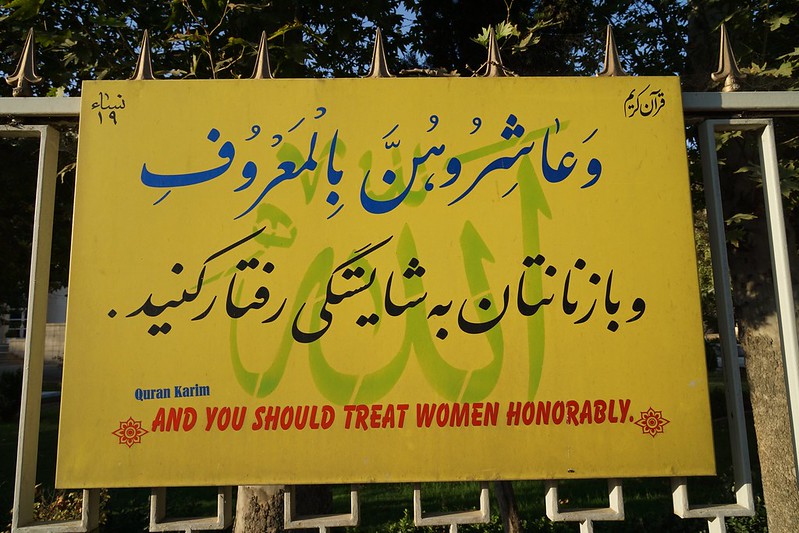On February 16, 2021, when Samira Zargari, a ski coach, was going to accompany the Iran’s Alpine ski team to Italy, she was not allowed to leave the country. Yusouf Ettefagh, her husband, had banned her from leaving, so the players took part in the world championships without a coach.
At the last moment, Marjan Kalhor, a longtime member of the national Alpine skiing team, took the place of the absentee coach, although Samira tried to guide them over the phone.
According to the laws of the Islamic Republic, married women need their husband’s permission to leave the country. Therefore, if a woman wants to go abroad for scientific conferences, tourism, trade, and even treatment of disease, her husband has to agree. In this particular case, Samira needed her husband’s written permission to participate in the tournament,
In a text message sent to The Associated Press, Samira mentioned that her husband had a relationship with her best friend and had now filed for divorce. As Samira objected to the divorce, he, in retaliation, barred her from leaving.
Men can use this law to their advantage under any pretext.
After Samira realized she could not travel, she asked FSI, the International Ski Federation, for help. It sympathized with any member who was not able to travel to the world championships but could not do anything against the laws of the nations. Appealing to the local courts was also ineffective, and Samira was eventually barred from accompanying the team in Italy.
Yusouf Ettefagh, on the other hand, was born in the United States and is a dual citizen. He grew up in a different cultural context and is familiar with concepts such as women’s rights and knows that laws in the United States are different from what is happening in Iran. But when he came to Iran, he abused his position in the patriarchal system and put pressure on his wife.
If Yusouf and Samira had been in the United States and the same problem had occurred, she would have been able to travel despite her husband’s opposition.
Some believe that young couples no longer care about these regressive laws and such arguments are rare in new generations’ families. They believe that the law should be left to its own devices and that couples should be encouraged to reach an amicable agreement. However, in this case, which the news spread quickly, we saw that the role of law in the couples’ lives remains important and can be used as a tool of pressure.
In previous years, Samira had not had this problem and had easily participated in the championships as a player, winning medals.
Samira Zargari was a well-known person, and her story was reflected in the most important news agencies, but there are thousands of other women who do not have fame and fortune and cannot do anything alone. These women are often suppressed at home, they know the law does not support them, and their opposition can lead to more domestic violence.
Over the years, other female athletes have had this problem and, with a few exceptions, others have not been able to leave the country. Once, Niloufar Ardalan, a player of the Iranian futsal team, went abroad with a court ruling. But in 2017, Zahra Nemati, a disabled archer and champion of two Paralympic Games, was banned from leaving by her husband and could not participate in competitions.
Shahindokht Molaverdi, the then Vice President for Women and Family Affairs (2013-2017), believes that exceptions cannot be sought and that these conditions must be provided for all Iranian women. Following the incident, after what had happened to Zahra, she announced that the “Passport Reform Plan to Facilitate Women Leaving the Country” was being considered by the Islamic Consultative Assembly. But the plan has never been approved by parliament and Iranian female athletes continue to struggle.
Is changing this law possible? Why not?! Laws should be for comfort and security, not ignoring the rights of citizens. Educated women and women’s rights activists have always tried to make changes and to take big steps.
“It is not the first time,” Forough Abbasi, a member of the team, told the Associated Press about her coach. “We had the same problem before this. But I wish we can change it – all the women in Iran, all together, I wish we could change it.”
“We are trying,” she continued. “I’m sure strong women can for sure change these rules and Samira will be stronger than before. We are proud of her, really.”
Image credit: s1ingshot

